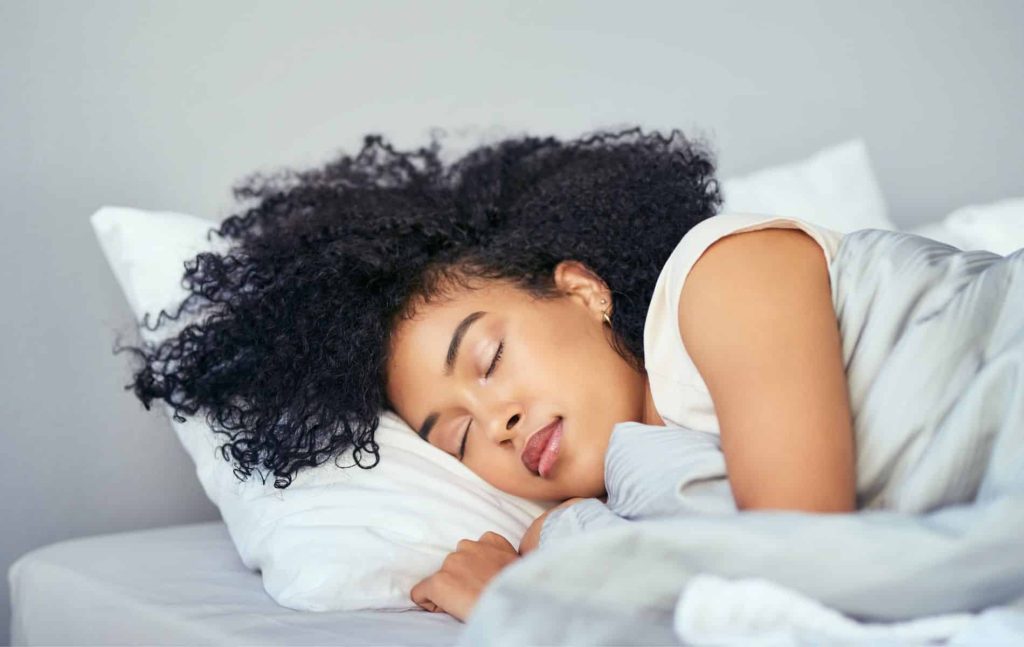Good sleep has all kinds of benefits: you feel more rested, your muscles recover, and you can focus better. But emotional events also feel different after a good night’s sleep.
When you have to make a difficult emotional decision, the old advice “sleep on it” quickly comes to mind. By giving it a rest, you will have a clearer mind later and be able to make a better decision. It turns out that this advice is more than just popular wisdom. Recent scientific research confirms that a good night’s sleep can contribute to improved emotional processing.
This is the conclusion reached by an international team that analyzed knowledge from more than twenty years of research on sleep disorders. “We looked at studies in neurobiology, neurochemistry and clinical psychology,” says researcher Rick Wassing. “In this way we can gain insight into the mechanisms that determine how sleep helps us process our emotional memories.” From all this knowledge, researchers concluded that regulation of the neurotransmitters serotonin and norepinephrine during sleep is necessary for processing emotional memories. Which affects our mental health in the long term.
During the day
To process emotional memories during sleep, the brain must first acquire that information. There are two important areas in the brain: the hippocampus and the amygdala. The hippocampus is the most important area of the brain when it comes to storing memories for long periods of time. It sorts today’s information, classifies it, and changes its storage from short-term to long-term. The amygdala is also involved in forming memories, but it becomes especially active when experiences are emotional. This brain area is also linked to the autonomic nervous system, meaning it can produce physical sensations during emotional events such as a knot in your stomach, a stitch in your heart, or a lump in your throat.
‘At night
During REM sleep (Rapid eye movement) The brain goes through all these experiences and memories of the day again and at an accelerated pace. “During sleep, these connections activate again spontaneously, as if the brain is running a summary of what happened,” Wassing previously explained to Scientias.nl. “Memory literally takes a different place in the brain. But perhaps more importantly, during REM sleep, other connections are cut off,” Wassing says. “This allows us to separate the memory of an emotional experience from the emotional and physical response.”
Serotonin and norepinephrine
The neurotransmitters serotonin and norepinephrine appear to play a major role in this process. Serotonin is involved in almost all aspects of learning emotional experiences. Norepinephrine specifically causes the classic “fight or flight” response. However, both pathways by which these neurotransmitters operate are shut down during REM sleep. “This creates a great opportunity for the brain to engage in processes that are not possible when we are awake,” explains Wassing. This explains why we feel that emotions in the morning are less intense compared to the previous evening.
Sleep better
When you sleep worse, and rapid eye movement (REM) sleep in particular is disturbed, this emotional network is not disconnected properly. This means that you are more likely to take your problems with you into the next day. This also explains why people with insomnia or other sleep disorders that cause people to wake up often have a higher risk of mental health problems. Wassing: Our hypothesis is that waking up from sleep triggers the noradrenergic system (via noradrenaline, Mr. Dr.) is no longer dysfunctional for long periods of time, and thus these people may be unable to organize emotional memories.
to treat
Sleeping better may seem like common sense advice, but anyone who’s spent sleepless nights knows that’s much easier said than done. One successful option, according to Wassing, is cognitive behavioral therapy. “We know that two out of three people with insomnia benefit from cognitive behavioral therapy for insomnia,” says the researcher. This is mainly based on subjective assessments, and there is less evidence on objective sleep measurements. The biggest disadvantage of this treatment as a solution to nocturnal emotional processing problems is that insomnia patients still suffer from sleep disturbances after this treatment. Therapy basically helps them deal with it better.
To truly address the brain problem, Wassing says, we need new ideas. “We need to think critically about the mechanisms that regulate sleep. It is very difficult to focus on one system, because sleep is so dynamic. We need creative ideas about how to design an intervention or medication that can address these dynamics during sleep. To make people with insomnia They sleep well again.
Sleeping well or not has several possible causes. One of them is your genetics, according to research conducted last year. Genes that cause insomnia in adults also appear to play a role in poor sleep in children. The researchers said that this provides indirect evidence of the presence of the so-called “bad sleep” trait throughout life. However, this does not explain everything. Sleep is a complex process affected by genetic and environmental factors, such as stress, light, noise, and temperature.

“Coffee buff. Twitter fanatic. Tv practitioner. Social media advocate. Pop culture ninja.”











More Stories
Which can cause an increase in nitrogen.
The Central State Real Estate Agency has no additional space to accommodate Ukrainians.
The oystercatcher, the “unlucky national bird,” is increasingly breeding on rooftops.